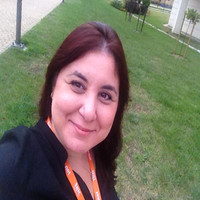ELT NEWS celebrates its 35th anniversary this month. The magazine came out in March 1989 and it was an initiative of the late Andreas Spyropoulos, teacher of English and publisher.
- You have had a long and diverse career. How do you define yourself as a professional and how close is what you do today to what you thought you’d be doing when you were young?
I had always wanted to become a teacher but not an English teacher. My true passion lay in teaching History –my first university degree was in History and Archaeology from the University of Athens.
However, life took an unexpected turn when I married my late husband, Andreas Spyropoulos, who happened to be an English teacher and the owner of his own language school. My plans were swiftly altered. I would become a teacher of English.
I took university entrance exams, and I was admitted to the Department of English Language and Literature of the University of Athens. Within two years, I successfully obtained a second university degree. As time went on, my academic pursuits expanded even further; studies in Applied Linguistics and TESOL, in Psychology and Pedagogy.
When ELT NEWS was established in 1989, I seized the opportunity to contribute to the field in a different capacity, starting as an assistant editor and steadily working my way up to become an editor and eventually chief editor after years of dedicated practice. So I started as a teacher of English, then I became an editor in a publication and as of last year, I made a return to the classroom. I teach English to a group of 20 adult, mixed-ability learners. It's interesting how life moves in cycles.
- In your view, how has ELT NEWS impacted our field?
ELT NEWS serves as a platform for sharing knowledge, ideas, experiences, and expertise, fostering a sense of community among practicing teachers who often engage in isolated activities. It has actively reported on new and innovative approaches and methods, which was particularly significant during a time when the vast majority of educators followed the grammar-translation approach. Moreover, it has documented all major changes in the field of ELT, while also advocating for educators to join associations and learn from their fellow teachers. This embodies the core philosophy of ELT NEWS.
With over 300 published interviews featuring prominent ELT personalities from both Greece and abroad, it has provided a platform for teachers, teacher trainers, and authors to share their insights and vision with the readers of ELT NEWS. In addition, it has given a voice to ordinary teachers who face challenges in the classroom, regardless of whether they work in state or private school environments. This impactful inclusion of diverse perspectives is truly commendable.
- ELT News started with the work of your late husband Andreas Spyropoulos, how do you think he would feel if he could read ELT NEWS now?
Andreas had no fear of change; quite the contrary, he despised stagnation. He wholeheartedly embraced change as an avenue for personal and professional growth. I am certain he would have appreciated both the appearance and content of ELT NEWS. While its mission remains unchanged, the format underwent a transformation, transitioning from a newspaper to a glossy magazine.
We continue to feature interviews, as there are always individuals with valuable insights to share. Moreover, we actively promote the work of the new generation of educators and provide coverage of associations' events.
However, I find myself hesitant when contemplating the emergence of a new trend through social media: the influencers. To gain his acceptance of this trend, we would need to demonstrate that our focus solely rests on educators whose social media presence encourages and fosters personal and professional development – which is indeed the case.
What is missing, however, is his column “τα καυστικά του Αλφα” but no one can imitate his sense of humour.
- In all my years as a teacher, there has only been one independent ELT publication for teachers and school owners and that’s ELT NEWS. Why do you think is that?
There have been numerous publications in the market created by teacher associations and individuals; they have all come and gone. What could be the reason behind this fluctuation? Initially, it seemed like an easy task: publishers would advertise, people would submit articles, and the issue would be ready. However, the reality is far from that.
ELT NEWS is a demanding full-time job. We plan six months ahead, ensuring that we stay on schedule. Each issue revolves around a focal theme, and the list of themes is shared with contributors one year in advance. Experienced writers do not require guidance. However, novice writers benefit from detailed instructions provided to them, such as what to include, how to present their thoughts and ideas, recommended article length, deadlines, and guidelines for photos and CVs. The process is far from simple.
Conducting interviews is another story. Prior to formulating the questions, I conduct extensive research on the interviewee's interests and philosophy. This involves reading their published articles, their blogs, and reviewing any prior interviews they may have given. Only after this thorough analysis do I craft the questions.
Lastly, I would like to offer some advice to the teachers reading this interview. Being a professional entails demonstrating a high level of expertise, competence, and ethical conduct. It extends beyond merely having a job or fulfilling tasks; it encompasses a set of qualities and behaviours that are expected of individuals within their respective professions.
These standards are not only reflected in ELT NEWS consistently but also contribute positively to the growth and advancement of the ELT field, leaving a lasting impact on colleagues, and society at large.
The interview was first published in August 2023 at the TESOL Macedonia-Thrace Northern Greece newsletter

